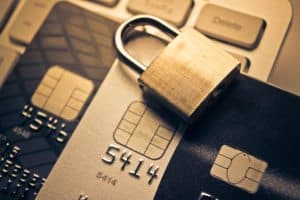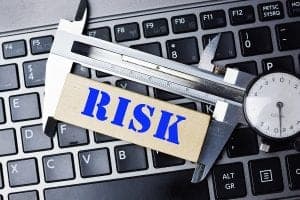CVV2 codes play an important role in payment security. Learn what CVV2 numbers are, how they protect your business, and other security measures you can take.
Our content reflects the editorial opinions of our experts. While our site makes money through
referral partnerships, we only partner with companies that meet our standards for quality, as outlined in our independent
rating and scoring system.
Think about the last time you made a purchase online or over the phone. That three or four-digit code on the back of your debit/credit card is your CVV2. This is an added step of security designed to help consumers and business owners.
But do you really need CVV2 codes? And can you bypass asking your customers for theirs? Keep on reading to find out.
What Is CVV2?
A CVV2 is found on the back of credit and debit cards. It is a three or four-digit number designed to ensure that anyone making a purchase has the card physically in hand. These codes aim to prevent the unauthorized use of a credit card in a card-not-present transaction.
Card-not-present transactions are typically online purchases, but they also include manually entered transactions (such as orders placed over the phone) as well.
CVV VS CVV2: What’s The Difference?
Payment brands don’t agree on the same terms for a CVV, so you will encounter more than one name for these numbers. All of the following terms refer to the same thing:
- Card Verification Value (CVV Or CVV2): Visa and Mastercard
- Card Verification Code (CVC): This term refers to the CVV/CID code
- Card Identification Number (CID): Discover and American Express
CVV codes are built into magnetic strips/chips and are automatically transmitted when you swipe/insert/tap your card.
A CVV2 is simply the number printed on the back of the card and is not built into the card itself.
Where To Find A CVV2 Number On A Credit Card
| Issuer |
Name |
Location |
Number Of Digits |
| Visa |
CVV2 |
Back of card |
3 |
| Mastercard |
CVV2 |
Back of card |
3 |
| American Express |
CID |
Front of card |
4 |
| Discover |
CID |
Back of card |
3 |
These codes aren’t transmitted when a credit card is swiped, dipped, or tapped during a card-present transaction. The CVV2 number is another layer of security that helps merchants prevent different types of fraud and reduce their liability.
Why Do Online Shoppers Need A CVV2 Code?
It is legally required for you, as a merchant, to take a CVV2 from customers for card-not-present transactions.
Online shoppers need a CVV2 code to prove that the actual cardholder is making the purchase when doing card-not-present transactions. It is the best way to prevent online credit card fraud that we have at this time.
Additional benefits of CVV2 codes include reducing the costs of credit card fraud and preventing chargebacks for merchants.
How To Bypass A CVV Code
Technically speaking, you can’t.
That said, there are ways customers can use their card where they don’t need to enter their CVV2 every time they purchase from you. Allowing (legal and secure) options for customers to avoid having to get up to find their card and CVV2 number will reduce shopping cart abandonment.
Some different ways your customers can pay that don’t require their CVV2 are digital wallets, including PayPal, Google Play, subscription memberships/recurring billing, and Click to Pay.
Final Thoughts On CVV2 Codes
Now that you know the basics of CVV2 and how the different variations of these security codes impact you and your customers, you’re ready to take card-not-present transactions.
Make sure that your payment processing company is up to date with the latest PCI compliance standards so you don’t have to deal with fines and other punishments for non-compliance.
Do you need to find a secure payment processor? We have plenty of resources to help you find the best online payment processors for your small business.
FAQs: What Is CVV2?
Is it safe to take credit card numbers and CVV over the phone?
It is safe to take credit card numbers and CVV over the phone as long as you are making sure that you do not store the CVV in any way, no one (especially other customers) can hear the entire number, and you aren’t writing down any credit card information in the process.
How can you bypass a CVV code?
There is no way to bypass a CVV code, technically, but by using a service such as a digital or mobile wallet, a subscription/membership, or click-to-pay, you can avoid having to enter your CVV each time you purchase from a business.
Is it legal to store a customer's CVV code and card numbers?
Storing a customer’s card number in a PCI-compliant payment processing system is legal. It is NEVER legal to store a customer’s CVV code in any way.












